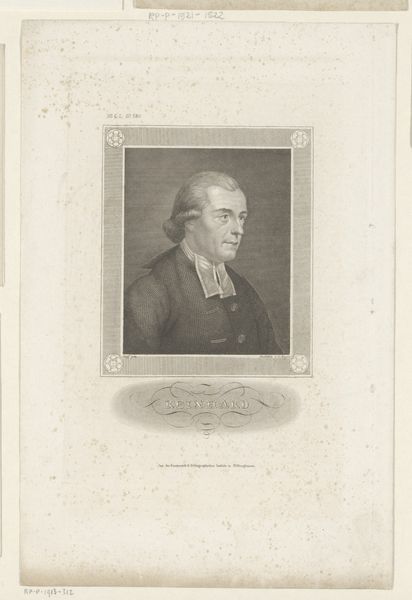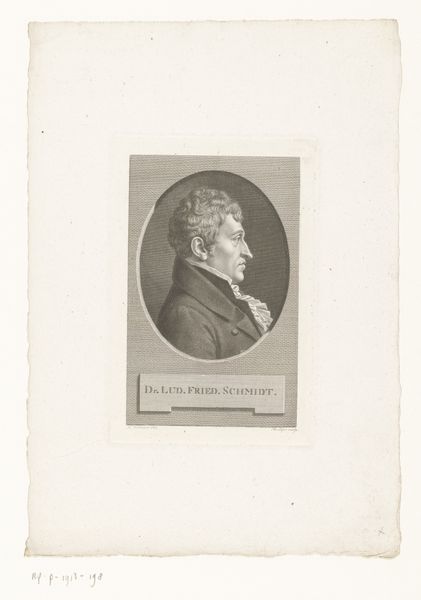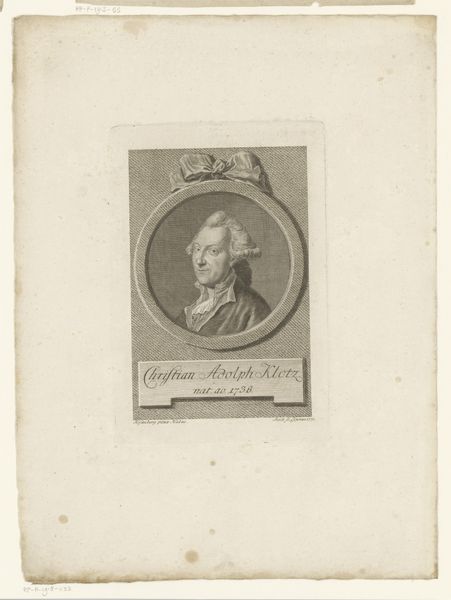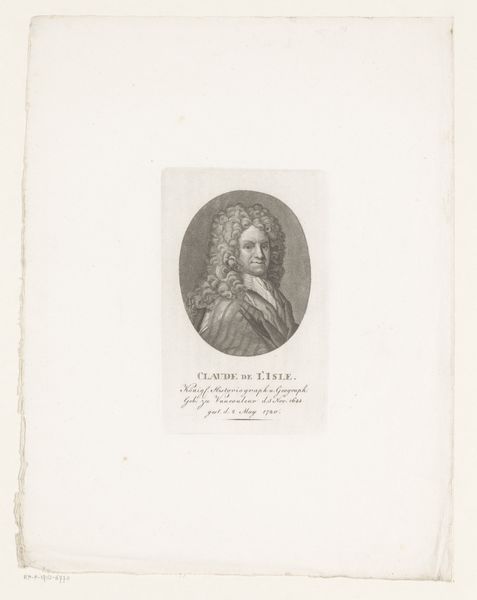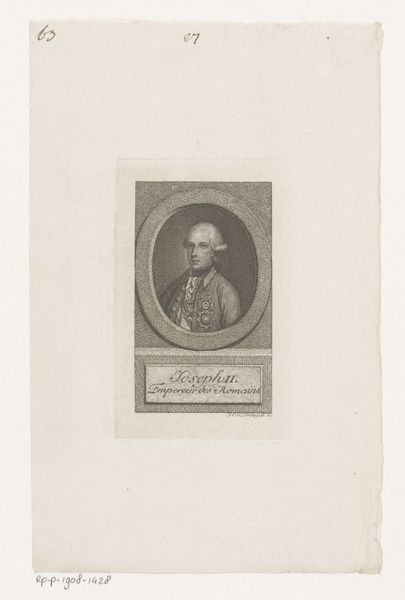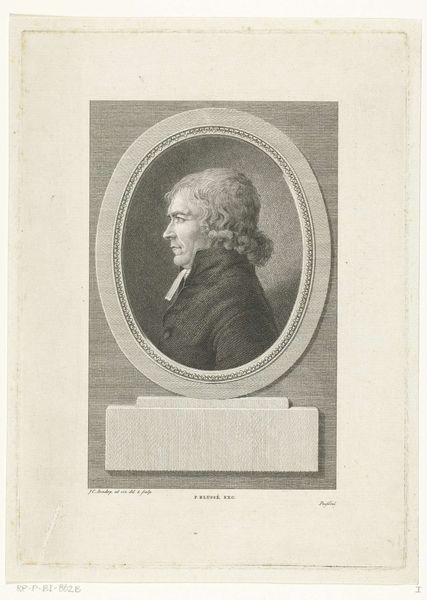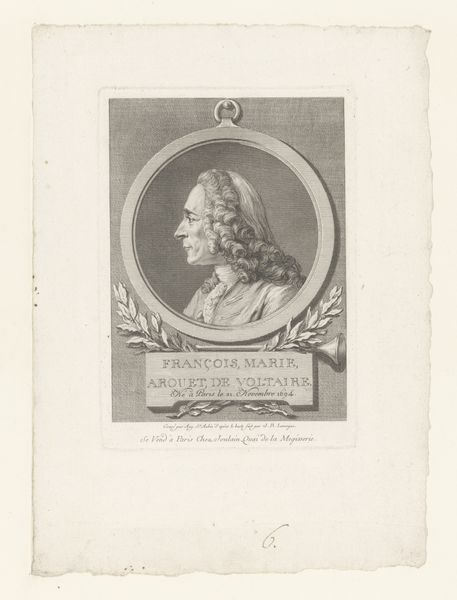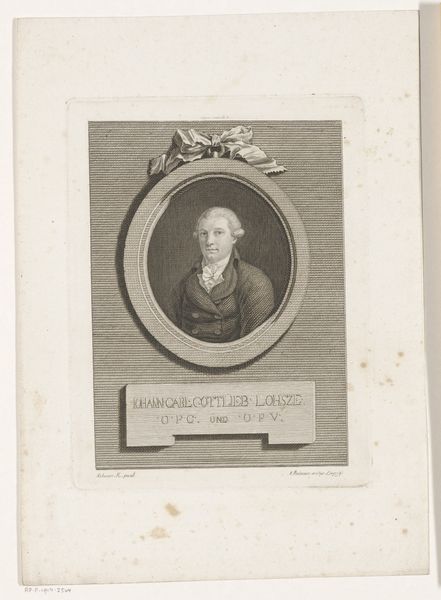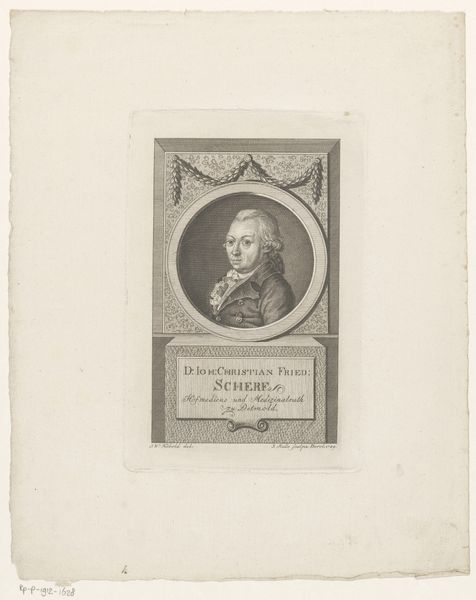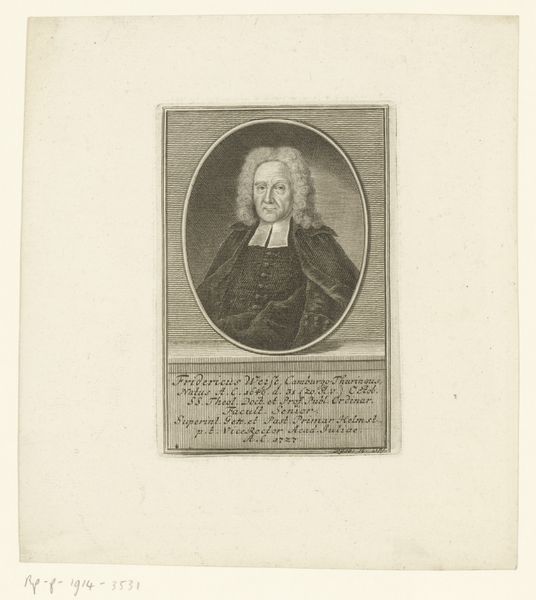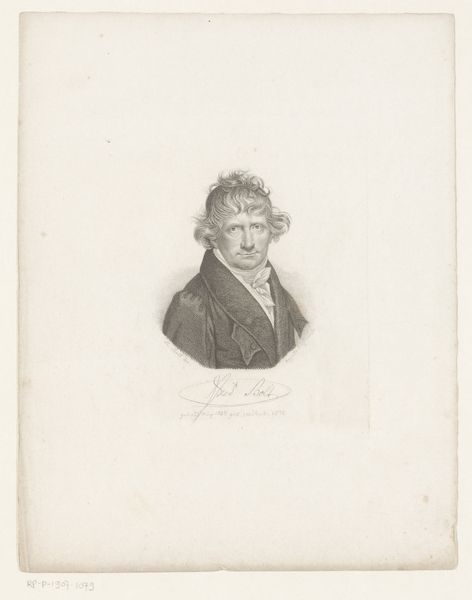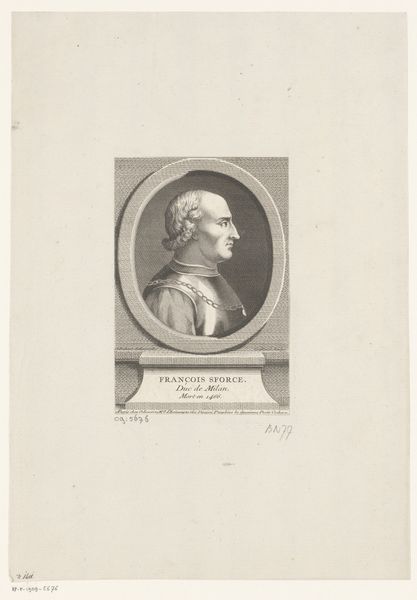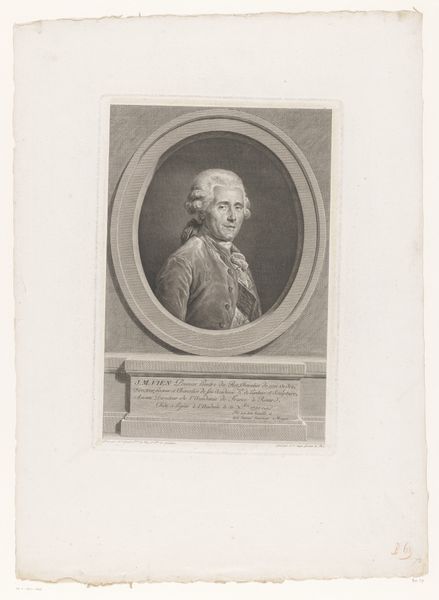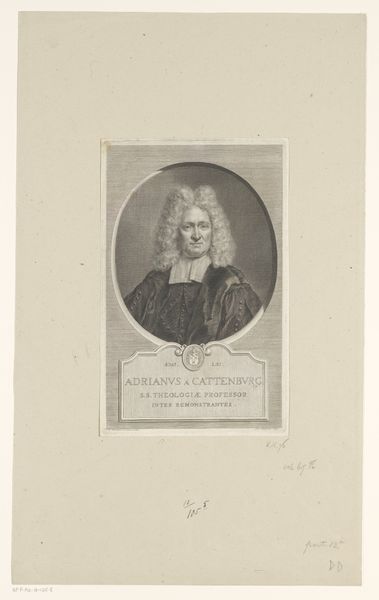
print, engraving
#
portrait
#
neoclacissism
# print
#
15_18th-century
#
line
#
history-painting
#
engraving
Dimensions: height 199 mm, width 157 mm
Copyright: Rijks Museum: Open Domain
Editor: This is a portrait of Georg Friedrich Danz, dating from between 1759 and 1819, by Christian Gottfried Schultze. It’s an engraving, and I’m struck by how it captures a certain… stoicism? What do you see in this piece? Curator: Stoicism is a fine initial impression. Think about the oval frame, like an ancient cameo. Consider what placing a figure—particularly a man associated with leadership, implied here by his military garb—within that shape communicates. It recalls the Roman ideal of civic virtue, which the Neoclassical movement sought to revive. What symbols do you notice? Editor: Well, the military uniform obviously suggests duty and service. But what else is there to see? Curator: Observe how the meticulous detail focuses the gaze and the eye traces every line. The lack of overt emotional expression channels power. His slightly receding hairline perhaps hints at wisdom acquired through age and experience, key elements of leadership, connecting the man to enduring ideals. Does that give you another sense of the portrait? Editor: Definitely. Seeing him connected to Neoclassical ideals and the imagery of leadership really deepens my understanding of the portrait's purpose beyond just a likeness. Curator: Indeed. Consider how each element, from the inscription bearing his name to the precision of the engraving technique, contributes to constructing an image imbued with a particular kind of authority and cultural memory. What do you take away from considering it this way? Editor: I see now that this is a really carefully constructed image meant to project power and stability, drawing on recognizable cultural symbols to achieve its effect. It really enriches how I will look at art in the future.
Comments
No comments
Be the first to comment and join the conversation on the ultimate creative platform.
